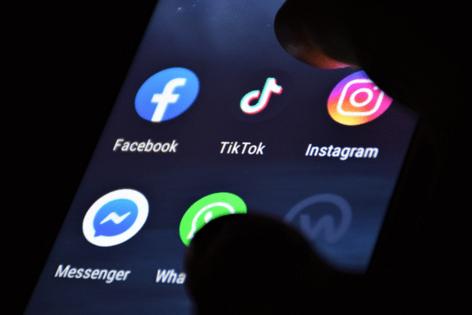Tech lobbying group sues Virginia over law limiting kids' time on social media
Published in News & Features
NetChoice, a tech trade association representing companies such as Google, YouTube and Meta, is suing Virginia over a state law that limits how much time kids can spend on social media platforms. The law passed with unanimous support in both chambers this past legislative session.
Set to take effect Jan. 1, the law requires social media companies to determine if users are under 16, and if so, limit their time on the platform to one hour per day per app. Parents can consent to increasing or decreasing that limit.
In the lawsuit, brought before the U.S. District Court for the Eastern District of Virginia in Alexandria, NetChoice argues that the law is an infringement on First Amendment protections of speech. The group seeks an injunction to prevent the state from enforcing the law.
“The First Amendment forbids government from imposing time-limits on access to lawful speech,” said Paul Taske, co-director of the NetChoice Litigation Center in a statement. “Virginia’s government cannot force you to read a book in one-hour chunks, and it cannot force you to watch a movie or documentary in state-preferred increments. That does not change when the speech in question happens online.”
The lawsuit also alleges that the law poses privacy and security concerns. NetChoice has sued other states that have passed similar legislation.
State Sen. Schuyler VanValkenburg, D-Richmond, carried the legislation.
“We know that the way social media apps are working, they’re increasingly diverting kids away from academics, from social time with their peers, and increasingly trying to keep them addicted and sending them to more and more extreme content,” he said. “The purpose of this bill was to try to kind of set some guardrails around that.”
VanValkenburg, a teacher in Henrico, said social media use can hurt children’s mental health, academics and social education.
In February, NetChoice submitted a letter to Gov. Glenn Youngkin urging him to reject the legislation and instead promote social media literacy for students and parents.
“Providing parents with the knowledge of how to navigate and make use of these tools empowers parents and helps ensure that parents, not the government, stays in the drivers’ seat for their families,” the letter read. “By continuing to lead the country in innovating educational campaigns, Virginia can move the needle for internet safety work across the country while demonstrating that this important work doesn’t have to come at the expense of Americans’ constitutional rights.”
Youngkin initially returned the bill to the legislature, suggesting it implement the social media restrictions for anyone under 18 and the addition of a clause that would disable the infinite scroll feature of social media sites for minors.
The legislature voted not to adopt those amendments, and Youngkin ultimately signed the bill as it was initially passed.
A spokesperson for Youngkin referred questions about the lawsuit to the Attorney General’s Office, but said the legislation “is about empowering parents to protect their kids.”
“Social media has been repeatedly identified as a key driver of alarming behavioral health trends, such as depression and suicidal ideation, among young Virginians,” Youngkin’s spokesperson said. “Parents need help pushing back with reasonable guardrails and consumer protections on this omnipresent technology.”
VanValkenburg said he was confident NetChoice would lose in court, and that parents sufficiently retained control of how their children use social media under the law.
“It’s just a setting, a default,” he said of the hour limit. “It’s not actually mandating one-hour access. Speech has always had time, place, manner restrictions on it… This is not actually infringing on speech. It is ensuring that social media isn’t consuming kids’ lives.”
_____
©2025 The Virginian-Pilot. Visit pilotonline.com. Distributed by Tribune Content Agency, LLC.







Comments